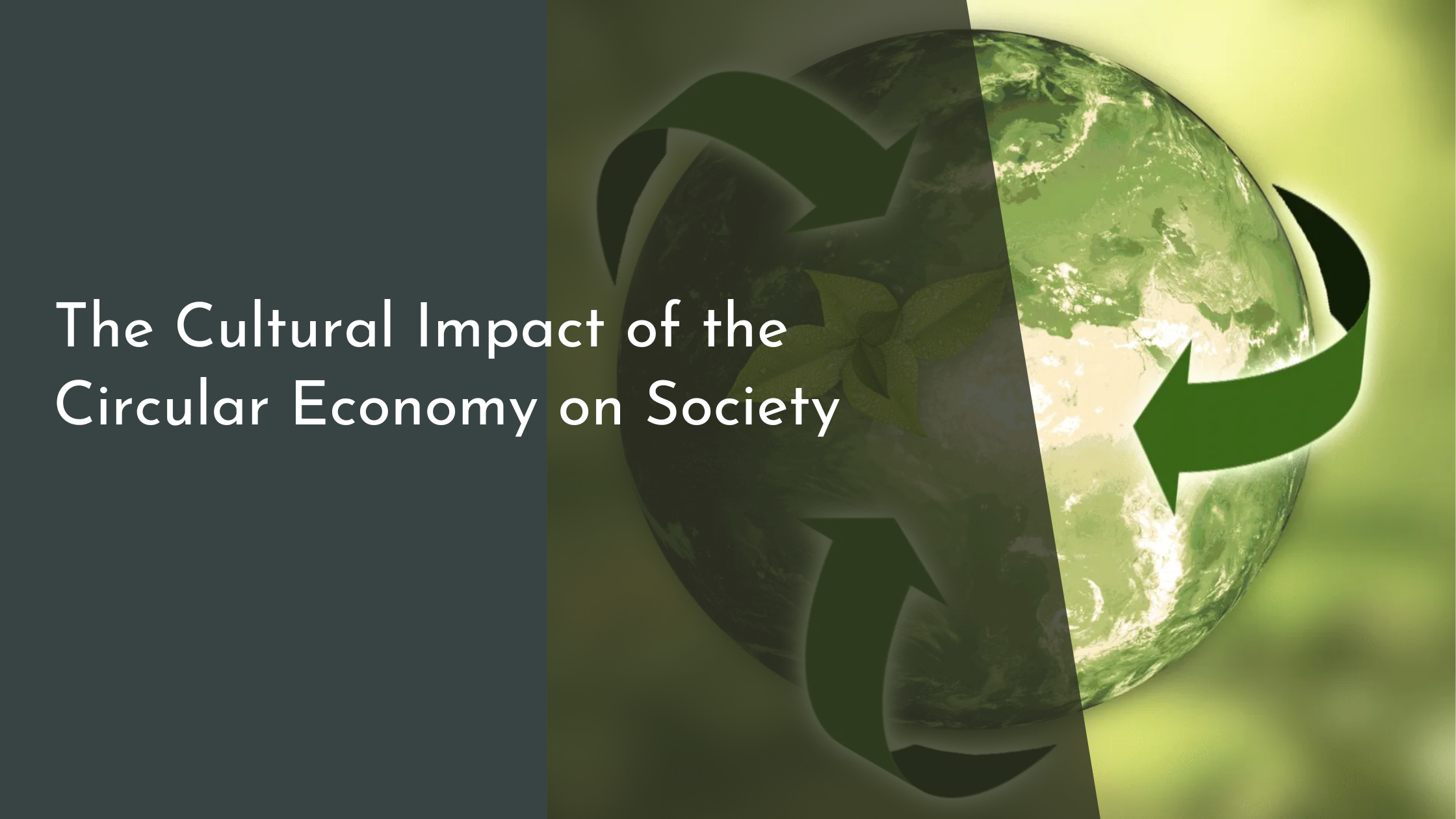The Cultural Impact of the Circular Economy on Society
The circular economy is more than just an economic model; it’s a transformative framework that influences cultural values and societal practices. As communities worldwide grapple with the pressing need for sustainability, the circular economy offers a promising path. By redefining how we produce, consume, and dispose of goods, it profoundly impacts cultural norms and environmental consciousness. This article explores how the circular economy interacts with and reshapes our society, encouraging sustainable practices and inspiring innovations.
Understanding the Circular Economy Framework
The circular economy framework is a system that aims to eliminate waste and promote the continual use of resources. Unlike the traditional linear economy, which follows a ‘take, make, dispose’ model, the circular economy emphasizes designing products for longevity, reusability, and recycling. This approach not only minimizes environmental impact but also promotes economic resilience by creating new business opportunities and jobs in recycling, remanufacturing, and repair sectors.
At its core, the circular economy is about creating closed-loop systems where materials continuously flow through the economy without becoming waste. This requires a shift in how products are designed, manufactured, and consumed. By focusing on renewable, recyclable, and biodegradable materials, the circular economy reduces dependency on finite resources and fosters a culture of sustainability. As more companies and individuals adopt this model, it sets a foundation for a more sustainable and equitable future.
How the Circular Economy Shapes Cultural Values
The circular economy has a profound influence on cultural values by promoting a more mindful and responsible approach to consumption. It encourages individuals to see value in materials that were previously considered waste, transforming perceptions about ownership and resource management. This shift fosters a culture of sharing, repairing, and repurposing, ultimately challenging the prevailing norms of disposable consumerism.
Cultural values also evolve as communities embrace the principles of the circular economy. By prioritizing sustainability, people become more aware of their environmental footprint and the long-term implications of their choices. Educational programs and community initiatives often accompany these changes, further embedding circular values into societal norms. As a result, a culture of environmental stewardship and social responsibility emerges, aligning with the broader goals of sustainable development.
Promoting Sustainable Practices in Daily Life
Incorporating circular economy principles into daily life transforms routine activities into opportunities for sustainable living. Simple practices like recycling, composting, and choosing products with minimal packaging can significantly reduce waste. Moreover, the rise of digital platforms facilitating the sharing economy—such as car-sharing, tool libraries, and clothing swaps—illustrates how technology can support sustainable lifestyles by reducing the need for ownership.
Promoting these sustainable practices also involves rethinking our approach to purchasing and consumption. By choosing durable, repairable, and recyclable products, consumers can extend the life cycle of their possessions and reduce their environmental impact. This conscious consumption fosters a deeper appreciation for quality over quantity, encourages local and sustainable production, and ultimately supports a resilient economy that values sustainability.
Inspiring Innovations through Circular Solutions
The circular economy is a fertile ground for innovation, inspiring new business models and technologies that prioritize resource efficiency and sustainability. From biodegradable packaging to modular product designs that facilitate easy repair and recycling, circular solutions challenge traditional industries to rethink and innovate. These innovations often lead to cost savings and increased competitiveness, demonstrating that sustainability and profitability can go hand in hand.
Moreover, the circular economy encourages collaboration across sectors, fostering partnerships between businesses, governments, and communities. This collaborative spirit drives the development of innovative solutions that address systemic challenges, such as waste reduction and resource scarcity. By leveraging technology and creativity, the circular economy not only inspires new ways of doing business but also paves the way for a more sustainable future.
The cultural impact of the circular economy extends far beyond environmental benefits. By reshaping values, encouraging sustainable practices, and driving innovation, it offers a holistic approach to achieving a more sustainable society. As individuals, communities, and businesses continue to embrace circular principles, we move closer to realizing a future where economic growth harmonizes with environmental stewardship and social responsibility. This transformative journey invites everyone to contribute, fostering a shared commitment to a sustainable and thriving world.

